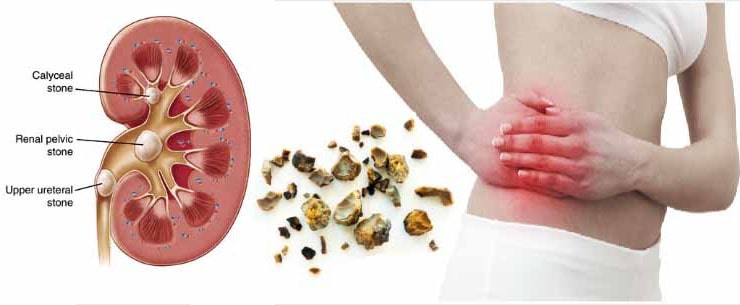Retrograde Intrarenal Surgery, short for RIRS, is a low-risk, minimally invasive surgery for kidney stones. There are no cuts or stitches. The best urologist in Vashi, Navi Mumbai, uses an endoscope, a special thin instrument for the procedure.
The endoscope passes through your urinary tract, i.e., your urethra and the bladder, to reach your kidney. The urologist uses laser energy to break stones. It’s an ideal medical treatment for patients whose bodies can’t handle an invasive, open surgery.
Indications for RIRS
RIRS is recommended when you have:
Smaller Stones: If you have a small kidney stone, less than 2 cm in size, you may be a good candidate for RIRS. That said, the procedure is also used if the stones are larger and have not responded to extracorporeal shock wave lithotripsy.
Hard-to-Reach Areas: Stones located in locations that are difficult to access through other procedures can be broken down into small fragments with an endoscope. The tool offers excellent flexibility and manoeuvrability, allowing your surgeon to access the stone and remove it easily.
Patients Not Fit for Invasive Surgery: Elderly patients and others with a compromised immune system or medical issues, such as bleeding disorders or obesity, might want to consider this least invasive and safest approach for kidney stone removal.
Procedure Details
Here’s the step-by-step guide for RIRS:
Step 1: You will be sedated throughout the surgery to ensure a completely painless procedure
Step 2: An optic endoscope is inserted into the urethra and bladder. It’s then moved up toward the affected kidney.
Step 3: Once the endoscope reaches its destination, the camera attached to its end is used to visualize stones.
Step 4: The surgeon uses a laser to break the stone. Once it’s broken down, it can pass naturally over days or weeks.
Step 5: A stent may or may not be placed (temporarily) to allow urine drainage.
Advantages of RIRS
Here are the reasons why RIRS surgery in Vashi, Navi Mumbai, is often a preferred choice of treatment for kidney stone removal.
No Severe Trauma: RIRS is a minimally invasive surgery with no incisions or sutures. There’s no trauma to the blood vessels or nerves, making it safer and less painful than other surgical approaches.
Shorter Hospital Stay: You can expect a discharge within 24 hours if your vitals are stable.
Quick Recovery: You can resume your normal life within a few days to a week after RIRS. Less post-operative pain with no scars makes recovery easier and quicker compared to an open surgery.
Post-operative Care
It’s normal to have some discomfort in the abdomen or back after RIRS. Urinary symptoms, like blood in the urine and frequent trips to the restroom, are also common side effects of the treatment, but they usually resolve in a week. Your surgeon will prescribe painkillers and other over-the-counter medications to relieve pain and other symptoms.
Urinary urgency is especially common in patients who have a stent placed. This will be removed in 1-2 weeks. It’s advisable to drink enough water to ensure the smooth passing of the remaining fragments (if any) of the stone naturally. You must also avoid heavy lifting, physically demanding exercises, and sexual intercourse for a few weeks.


